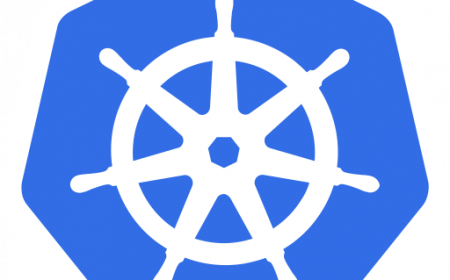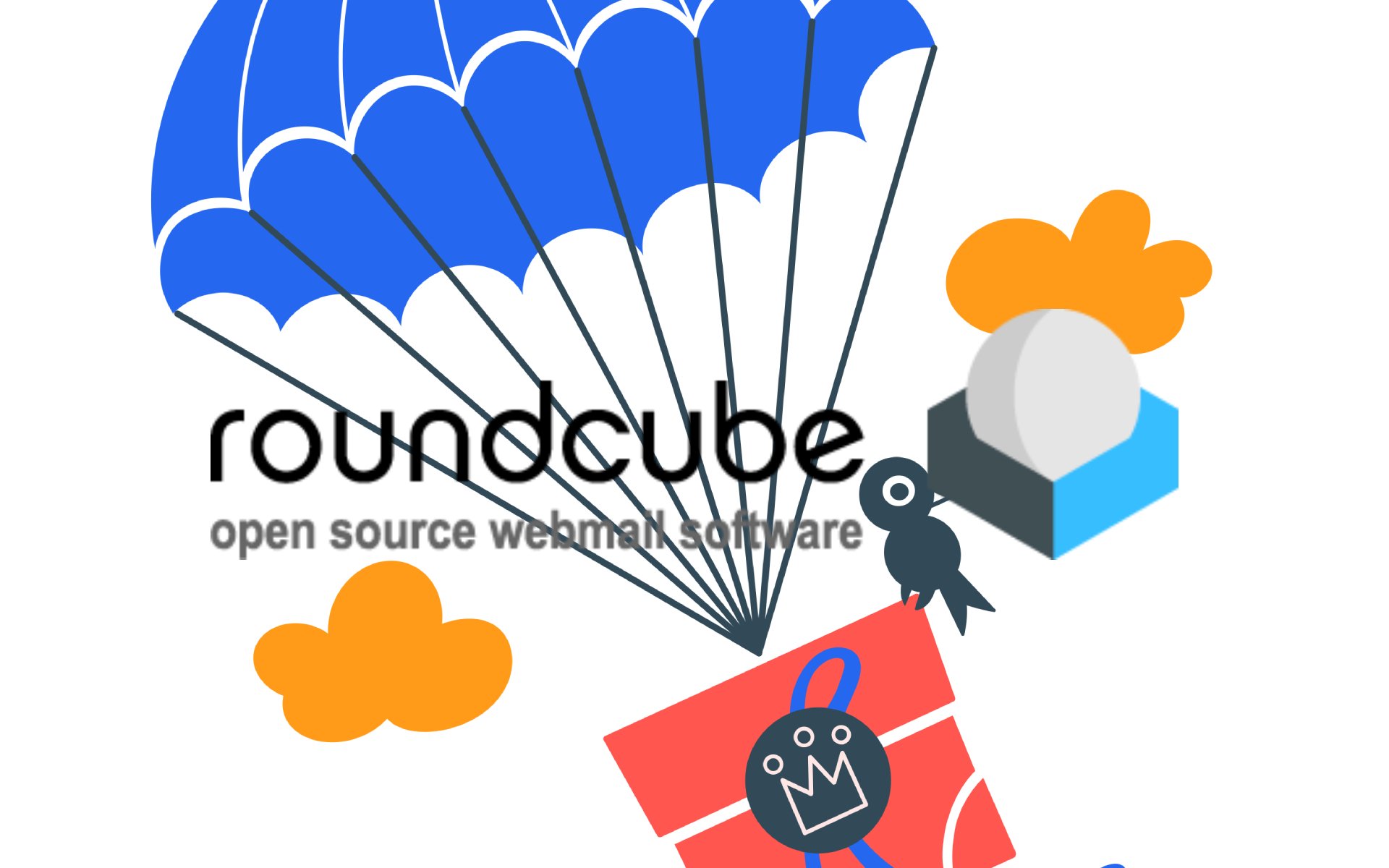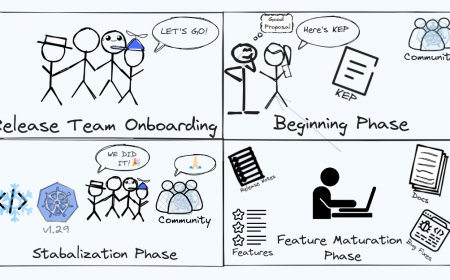Diving deep into Kubernetes and the management of containerized applications

Kubernetes, often abbreviated as K8s, is an open-source container orchestration platform designed to automate the deployment, scaling, and management of containerized applications. Originally developed by Google, Kubernetes has become the industry standard for managing cloud-native applications, offering unparalleled flexibility and efficiency. Kubernetes is now managed by the Cloud Native Computing Foundation (CNCF.)
The name Kubernetes originates from Greek, meaning helmsman or pilot. K8s as an abbreviation results from counting the eight letters between the "K" and the "s". Google open-sourced the Kubernetes project in 2014. Kubernetes combines over 15 years of Google's experience running production workloads at scale with best-of-breed ideas and practices from the Kubernetes community.
Understanding Containerization
Containerization is a method of packaging applications and their dependencies into isolated environments known as containers. Unlike traditional virtual machines, containers share the host operating system’s kernel, making them lightweight and highly portable. This approach ensures consistency across different environments, from development to production.
Kubernetes Architecture
Kubernetes follows a client-server architecture, comprising two main elements:
1. Control Plane – Manages the overall cluster.
2. Worker Nodes – Execute containerized applications.
1. Control Plane
The control plane is responsible for maintaining the desired state of the cluster and orchestrating workloads. It includes:
- API Server (`kube-apiserver`) – Acts as the gateway for all Kubernetes operations, exposing the Kubernetes API.
- etcd – A distributed key-value store that maintains cluster state and configuration.
- Scheduler (`kube-scheduler`) – Assigns workloads (Pods) to worker nodes based on resource availability.
- Controller Manager (`kube-controller-manager`) – Runs various controllers that handle tasks like node monitoring, replication, and endpoint management.
- Cloud Controller Manager (`cloud-controller-manager`) – Manages cloud-specific integrations, such as load balancers and storage.
2. Worker Nodes
Worker nodes are responsible for running containerized applications. Each node consists of:
- Kubelet – An agent that ensures containers are running as expected.
- Kube-proxy – Manages network communication between Pods and services.
- Container Runtime – The software responsible for running containers (e.g., Docker, containerd).
3. Kubernetes Objects
Kubernetes uses various objects to define workloads:
- Pods – The smallest deployable unit, containing one or more containers.
- Deployments – Manage application updates and scaling.
- Services – Enable communication between Pods and external users.
- ConfigMaps & Secrets – Store configuration data securely.
4. Networking & Storage
Kubernetes provides flexible networking and storage solutions:
- Cluster Networking – Ensures seamless communication between Pods.
- Persistent Volumes (PV) – Provide long-term storage for applications.
Kubernetes in AI and Machine Learning (ML)
Kubernetes plays a crucial role in supporting AI and machine learning (ML) workloads, offering scalability, automation, and efficient resource management.
1. Containerization of AI/ML Workloads
Kubernetes enables AI/ML models to be packaged into containers, ensuring portability and consistency across different environments. This approach simplifies deployment and eliminates dependency conflicts.
2. Automated Machine Learning Pipelines
Kubernetes automates end-to-end ML workflows, including data ingestion, preprocessing, model training, and deployment. This automation reduces manual intervention and accelerates AI development.
3. Scalability and Resource Optimization
AI/ML workloads often require high-performance computing (HPC) resources. Kubernetes dynamically scales clusters based on demand, optimizing GPU and CPU utilization for efficient model training and inference.
4. Multi-Cloud and Hybrid AI Deployments
Kubernetes supports multi-cloud and hybrid environments, allowing AI models to run across different cloud providers or on-premises infrastructure. This flexibility enhances availability and cost efficiency.
5. Fault Tolerance and Self-Healing
AI workloads can be computationally intensive, making fault tolerance essential. Kubernetes automatically detects failures, restarts containers, and ensures continuous operation without manual intervention.
6. Integration with AI Frameworks
Kubernetes seamlessly integrates with popular AI/ML frameworks such as TensorFlow, PyTorch, and Kubeflow, enabling efficient model training and deployment.
7. Efficient Scheduling for AI Workloads
Kubernetes optimizes job scheduling, ensuring AI tasks are executed efficiently. Features like batch scheduling and gang scheduling help manage deep learning workloads effectively.
Key Features of Kubernetes
Kubernetes provides a robust set of features that streamline container management:
- Automated Rollouts and Rollbacks: Kubernetes progressively deploys updates while monitoring application health.
- Service Discovery and Load Balancing: Assigns unique IP addresses to Pods and balances traffic efficiently.
- Storage Orchestration: Supports various storage solutions, including cloud-based and network storage.
- Self-Healing Capabilities: Automatically restarts failed containers and replaces unhealthy Pods.
- Batch Execution: Manages batch jobs and CI/CD workloads seamlessly.
Best Practices for Kubernetes Management
To optimize Kubernetes deployments, consider the following best practices:
1. Create Lightweight Containers: Minimize container image size to enhance deployment speed.
2. Use Multi-Container Pods Sparingly: Avoid unnecessary complexity in Pod configurations.
3. Specify CPU and Memory Limits: Prevent resource exhaustion and ensure stability.
4. Utilize Rolling Updates: Deploy changes gradually to minimize downtime.
5. Minimize Container Privileges: Enhance security by restricting unnecessary permissions.
Kubernetes in Action
Organizations worldwide leverage Kubernetes to manage microservices architectures, ensuring scalability and resilience. Whether deploying applications in a hybrid cloud or a fully cloud-native environment, Kubernetes simplifies operations and enhances efficiency.
Conclusion
Kubernetes has revolutionized containerized application management, offering automation, scalability, and reliability. By following best practices and leveraging its powerful features, businesses can optimize their cloud-native workflows and drive innovation.
For further details, explore the official Kubernetes documentation or check out this comprehensive guide on Kubernetes architecture. See also the Cloud Native Computing Foundation (CNCF)
-
-
-
|
We're here to support your projects and streamline your operations with cutting-edge solutions tailored to your needs and budget. Our solutions include but are not limited to: customized technology implementation, generative AI, bespoke business management software: SaaS, CRM, LMS, ERP, HMS, HR, POS, CMS, IT consulting, Cloud-native infrastructure, server management, cybersecurity, cross-sector technology management, and tech support and helpdesk services. Since 2003, Web and Cloud has been a trusted global technology partner, bringing extensive expertise to the field. Request an obligation-free quote today, and get served through Dfecho Free Quote Request service. |
-
-
Reward this post with your reaction or TipDrop:
 Like
0
Like
0
 Dislike
0
Dislike
0
 Love
0
Love
0
 Funny
0
Funny
0
 Angry
0
Angry
0
 Sad
0
Sad
0
 TipDrop
0
TipDrop
0





























